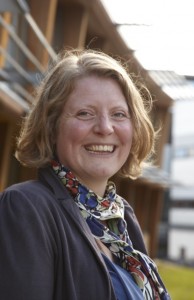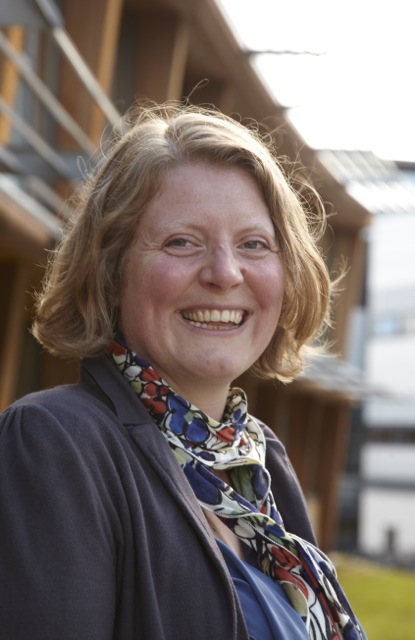Harriet Bulkeley is doing research on the role that cities play in the global warming. She has been awarded the King’s visiting professorship in environmental science. Within a year she will be working at the University of Lund.

Within fifteen years, more than 80 percent of the world’s demand for energy will come from the cities. Even though about 70 percent of the world’s emission of carbon dioxide is urban, the climate issues are discussed in terms of globalism. Harriet Bulkeley is instead shedding light on cities and other places that we normally don’t associate with power and environmental politics. Usually, she is a Professor at Durham University, at the geographical institution. But this year she will do visiting research at the Institution of Political Science in Lund.
– She is very innovative and has the ability to both connect and increase the contacts in Lund. She is able to contribute to an improved interdisciplinary dialogue. In that way, scientists can exchange experiences and work actively with sustainable development, according to Johannes Stripple, who is an Associate Professor at the Institution of Political Science in Lund.
350 trillion dollars will be invested in cities the following 30 years according to Harriet Bulkeley. The climate changes will challenge our urban understanding and the condition of the cities. During her time in Skåne, Harriet Bulkeley will focus on the heating systems in Lund. She will also look closer at what it will take for Malmö to become a climate-efficient city. She is currently one of the world’s most prominent climate researcher and Harriet Bulkeley believes that students can make a great difference.
– Within 30 years, the students of today will not only live in the cities, but also make strategically important decisions on their behalf. Some will be businessmen, some will be humanists and others will be lawyers. Most of today’s students will have a part in the formation of our future cities, and they will be able to affect their condition, according to Harriet Bulkeley.
Thinking long-term, will not only accumulate capital, but also other resources. Health, increased work opportunities and new markets are all examples of indirect consequences of a sustainable way of thinking. But there is also the possibility of changing norms on a basic level.
– We need to start thinking of how we live and the consequences of our choices. They may be direct as well as indirect. Sometimes legislation is needed, as in the case of energy-efficient light bulbs, but in most cases we only need to change the pattern of behaviour. Such an insignificant thing as pouring out a cup of coffee a day. Even if it is not a cost for me, it is a cost for somebody else, and a coffee bean in itself causes climate changes. Solidarity is important, says Harriet Bulkeley.
Is there anything you would like to say to the students of Lund?
– It is possible to change habits and behaviour. When I was a student at the University, there were for example no mobile phones. Creating new norms is a continuous process. You can make a difference if you have the will, and many people do. To think in terms of sustainability makes life better for all of us.
Text: Viktor Drangnell-Ek
Translation: Charlotte Fransson






